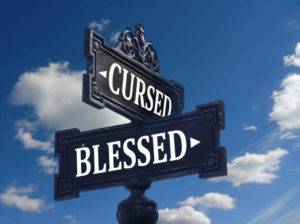As a rabbi in the community, I spend substantial time with interfaith couples. There is an undeniable trend with many Jews finding life partners with people of other faith traditions. It is a challenge that Judaism can successfully navigate. And hopefully, we can see the beauty and opportunity arising from such unions.
The story of Pinchas in Balak relates to a fear of intermarriage. It demonstrates how the Israelites were concerned about maintaining their community’s purity and adherence to God’s laws. In the story, the Israelites were seduced by the Moabite women. As a result, they began to engage in sexual immorality and idol worship, which threatened their relationship with God and their identity as separate people.
As a zealous and devout member of the Israelite community, Pinchas took matters into his own hands. He killed an Israelite man and a Midianite woman who were openly engaging in such behavior. His actions were seen as a necessary and just response to the threat of intermarriage and the resulting erosion of the Israelite community’s values and identity. This story speaks against intermarriage, then or now.
However, times have changed since the era depicted in the story of Pinchas. And indeed, this idea is not the first time Jews have seen borders and boundaries as porous, opportunities to engage new ideas and be enriched by them.
Judaism has a rich history of connecting with other cultures and incorporating new ideas, practices, and beliefs. Here are some specific examples of how Judaism has been enriched through its interactions with different cultures:
During the Babylonian Exile in the 6th century BCE, Jews were exposed to new ideas and practices from the Babylonian culture. This led to the development of new forms of Jewish scholarship and the compilation of the Babylonian Talmud, one of the central texts of Judaism.
In the Hellenistic Period in the 4th century BCE, Jews came into contact with Greek culture and philosophy. This led to the development of Hellenistic Judaism, which incorporated Greek ideas into Jewish thought. For example, Philo of Alexandria, a Hellenistic Jewish philosopher, used Greek philosophy to interpret the Hebrew Bible.
During the Islamic Golden Age in the 8th to 13th centuries CE, Jews lived in Muslim-majority societies and were exposed to Islamic culture and philosophy. This led to the development of Jewish philosophy, such as the works of Maimonides, who used Islamic philosophy to interpret Jewish theology.
Sephardic Jews originated in the Iberian Peninsula and had a rich cultural exchange with the Christian and Muslim cultures around them. This led to the development of Sephardic music, art, and cuisine, which have become integral and celebrated parts of Jewish culture.
The Hasidic movement emerged in Eastern Europe in the 18th century, incorporating mystical and ecstatic practices arguably adopted from the surrounding Slavic and Turkic cultures. This led to the development of Hasidic music, dance, and storytelling, which have become central to Hasidic culture and across many Jewish denominations.
In modern times, intermarriage is more widely accepted and celebrated, and many people see it as a positive way to build bridges between different cultures and communities. In many cases, intermarriage can help to promote understanding and reduce prejudice between groups. We are blessed to live in a place and time where we can marry the person we love because of whom they are rather than feel threatened or risk being ostracized.
When welcomed into Judaism’s embrace, these people also hold special esteemed status, known as a Ger Toshav. They have supported the Jewish community in which they live and enriched us. Although considered our “first convert,” Ruth may have been a Ger Toshav.
While some still hold on to the fear of intermarriage and seek to maintain the purity of their community, many people now recognize that diversity and intermarriage can be positive forces for social and cultural change.
Rather than fearing intermarriage, we can welcome those who choose it, seeing it as an opportunity for growth, connection, and understanding. Judaism rises to the occasion with its rich knowledge of its universal core values that are a foundation for creating a meaningful life. It also helps the 21st-century Jew see identity in an inclusive and embracing way.
Judaism has been enriched by its interactions with other cultures throughout history. These interactions have led to the developing of new ideas, practices, and beliefs, which have become integral parts of Jewish culture. Using the past as a prologue, we should welcome these couples with open arms.

